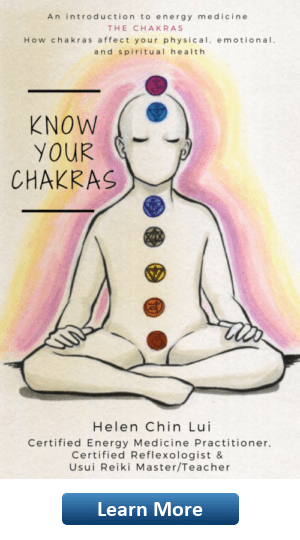In the United States, medication is widely considered the first line of defense against every kind of ailment. As a result, we’re getting addicted to prescriptions, and not really feeling much better at all.
While medication is truly necessary and can be helpful to some, my experience as a school counselor has made me witness to the growing social tendency to seek out a prescription as a first resort to an emotional challenge. If a child gets nervous around groups of people, they think they need anxiety medication. If they’re sad because their parents are divorcing or they’re going through some other traumatic life event, they think they need antidepressants.
This pervasive mindset disempowers us from working through our own challenges. It suggests that the solution is outside of ourselves, and that having these emotions means that we’re flawed and we need to be fixed.
As an alternative, I’ve outlined a formula you can tailor to your own needs and use as a guide to help you work through intense emotional experiences. It may be more difficult in the beginning, but it’s the only way to truly deal with an emotional issue. Often, otherwise, you’re just masking symptoms, creating a dependence on drugs, and effectively crippling yourself emotionally.
We are resilient, resourceful beings, and owe it to ourselves to make the effort to surmount challenges independently, before turning to pharmaceutical alternatives.
1. Recognize that all your feelings are OK.
You may have the impulse to pathologize and attempt to eradicate negative feelings as soon as you notice them. Reframe this. Intense or uncomfortable emotions are a byproduct of something unaddressed beneath the surface, the way back pain may be a sign that your spine is misaligned. Recognize that complex emotions are a part of your experience, and also part of the human experience. You are not flawed. You are simply feeling. Leave it at that for now.
2. Be kind to yourself.
Don’t see the feeling as an enemy, or a disturbance to your life. Don’t judge yourself for experiencing it. This is the breeding ground for more negative emotions. Radical self-love and acceptance create an open channel of inquiry into your psyche. By accepting what is, we can begin to question the root of our feelings and behavior objectively. Try to sympathize with yourself like you would a loved one in pain.
3. Ask yourself what belief is producing this emotion.
At the heart of someone’s social anxiety could be an unconscious fear of rejection — the belief that they are unlovable or only accepted under certain conditions, which they feel incapable of adhering to. Whatever the belief, challenge it. Identify all the ways that it is disproportionate to reality. Identify all the things that argue against that feeling.
Will people really care enough to think you’re weird if you don’t behave exactly how they think you should? Will everything in your life really fall apart if you don’t have time to get the groceries tonight? Reflect on all the reasons that prove these fears are unfounded, instead of surrendering to the belief that they are.
4. Find your catharsis.
Maybe it’s further self-reflection and a creative pursuit like writing or drawing. Maybe it’s conversation with a loved one. Maybe it’s meditation or yoga. Don’t overthink it; find what feels best, and do it.
5. Take notes.
Document the process however it makes sense to you, so you can return to the formula as needed. We are creatures of habit and similar situations will continue to arise. Knowing you have a proven plan to attack the problem can be comforting, and help you from going deeper into fear-based patterns in the future.
Once an emotion has been compassionately witnessed, we can release it. As we develop this skill, we can consciously choose whether or not to engage in thoughts or behaviors that perpetuate certain feelings. We see this process in mindfulness, person-centered therapy, and many other spiritual and therapeutic practices. The first step to moving on is validating yourself, your feelings, and your ability to deal with them effectively. Why not give yourself the chance to try?
Again, there are certain issues that require medication and other professional treatment, and if you feel you need help, check in with your health provider.
About the writer – Erin Nicole Haley is a school counselor, licensed professional counselor associate, and RYT-200 in mind-body centering yoga, a therapeutic and trauma-sensitive form of teaching. She has counseled students of all ages and has taught yoga for cancer patients, college athletes and students, elementary and middle school children, and classroom teachers. She strives to use her own internal process, the processes of her students, and the divinity in nature as her greatest teachers and sources of inspiration.
—————–
The HealingPlaceMedfield has helped thousands of people with finding long term relief from stress and find balance. If you are interested to learn how reflexology, chakra balancing and reiki can help you, please schedule a FREE consultation by calling 508 359-6463.









 The Healing Place LLC helps all ages to find relief from chronic pain, chronic digestive problems and balance hormones naturally. We practice COVID19 safety. Don’t forget to check on our online school HealingPlaceEnergySchool.com. Thank you.
The Healing Place LLC helps all ages to find relief from chronic pain, chronic digestive problems and balance hormones naturally. We practice COVID19 safety. Don’t forget to check on our online school HealingPlaceEnergySchool.com. Thank you.
Recent Comments